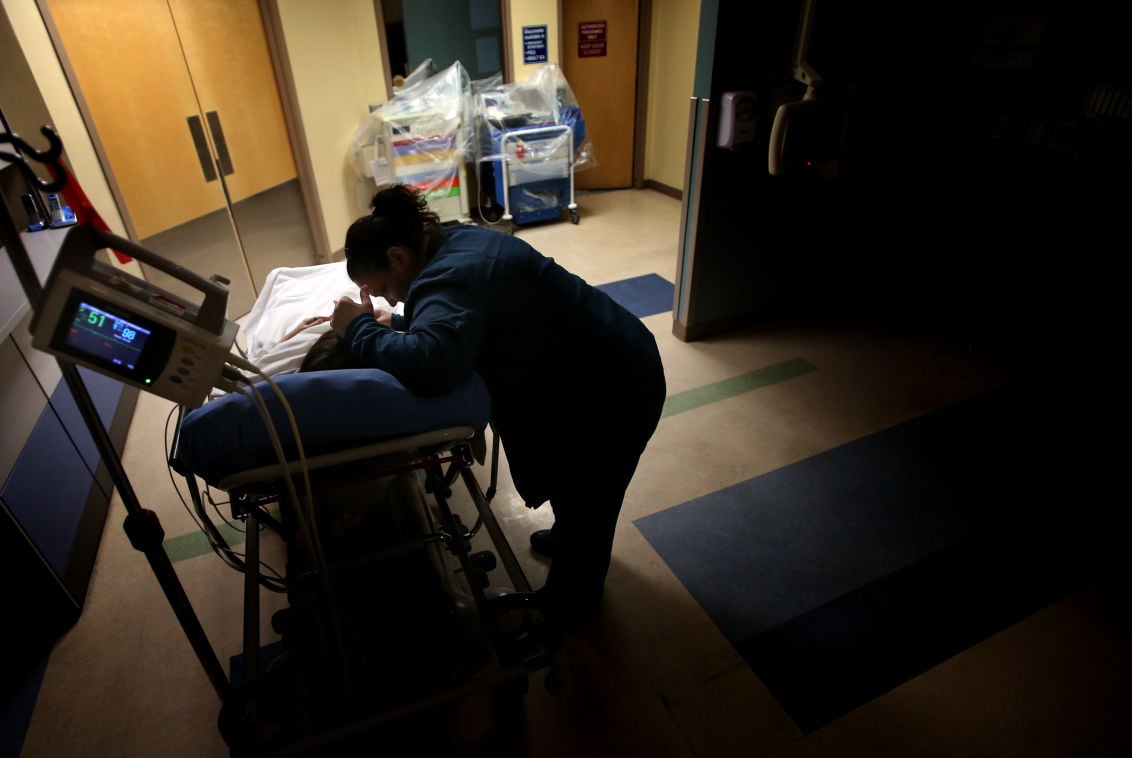Tucson Medical Center’s free stroke prevention event is back in-person Saturday for the first time in three years, with a free risk assessment clinic and medical professionals on-hand to provide consultations.
In 2019, stroke accounted for approximately 1 of every 19 deaths in the United States, with someone in the U.S. dying of a stroke every three-and-a-half minutes, according to the American Heart Association. When considered separately from other types of Cardiovascular disease, stroke was the 5th leading cause of death in the U.S. in 2019, causing 150,005 deaths.
Stroke can affect people or all ages and genders and TMC officials are hoping to raise awareness of the signs, as well as the risk factors and how to control them. The event– the only of its kind in the area– is open to the public, but advanced registration for a screening appointment window is required for the April 1 event.
A stroke occurs as a result of a blockage to the blood supply to part of the brain or from a burst blood vessel in the brain. Both cases cause damage to parts of the brain, with stroke potentially causing lasting brain damage, long-term disability or death.
Eighty percent of strokes are preventable if a person knows the risk factors, said Kinzi Hotchkis, TMC’s stroke coordinator.
“Over the years nationally, it’s dropped from the 3rd leading cause of death to the 5th,” Hotchkiss said. “But at TMC, volumes are actually increasing, probably because of our community. People come here to retire.”
As one of the few comprehensive stroke centers in southern Arizona, TMC sees a high number of stroke patients, since it’s facility is equipped with 24 hours a day, seven days a week with neurologists, on-call neurosurgeons and on-call neurointerventionalists– specially trained physicians that perform minimally-invasive surgery in the blood vessels that supply the brain and spinal cord.
“Patients can receiving lifesaving thrombolytics and thrombectomies at any hour of the day,” Hotchkiss said, referring to clot-busing drugs and treatments. “We have dedicated stroke units. The nurses and providers are very familiar with evidence-based best practices.”
Hotchkiss said the signs of a stroke can be remembered through the acronym, BEFAST.
Changes in balance
Changes to the eyes or vision
Facial Droop
Arm drift
Speech changes
Time sensitive or terrible headache
“You want to call 911 immediately or get to the ER right away,” Hotchkiss said. “And if it’s the worst headache of your life, it could be a stroke.”
Age is a common risk factor for strokes, but others include hypertension; atherosclerosis, or a buildup of fat and cholesterol on the artery walls; and high cholesterol.
Free testing at the event includes height, weight and body mass index; blood pressure and oxygen saturation; blood sugar and cholesterol measurements; and electrocardiogram. For best results, eight hours of pre-appointment fasting is recommended, but not required.
After attendees complete their assessment testing, they’ll meet with a physician to go over the results and decide if a follow-up visit with the person’s own physician is necessary.
“There will also be pharmacists there who can answer questions about medications, dietitians and additional resources. We try to make it as well-rounded as possible and give as many resources as we can,” said Maya Luria, TMC’s director of community partnerships and outreach. “It’s a really good way to get the ball rolling and for people to be aware.”
Consultations will also available with diabetes educators and advance care planning experts.
“It’s a great way for us to be able to give back to our community and keep them healthy,” Luria said of the event.
The event, which has been taking place since 2012, has always been first-come, first-serve, but providers have screened up to 400 people at past events. Luria said that the average is around 300 to 325 people, but TMC is hoping for a big response after three years away from its in-person format.
Topics of discussion at the event will include brain health and senior health and wellness.
Telehealth has become more common since the COVID-19 pandemic, and TMC's new program is an example of this promising change. Video by Patty Machelor/Arizona Daily Star





